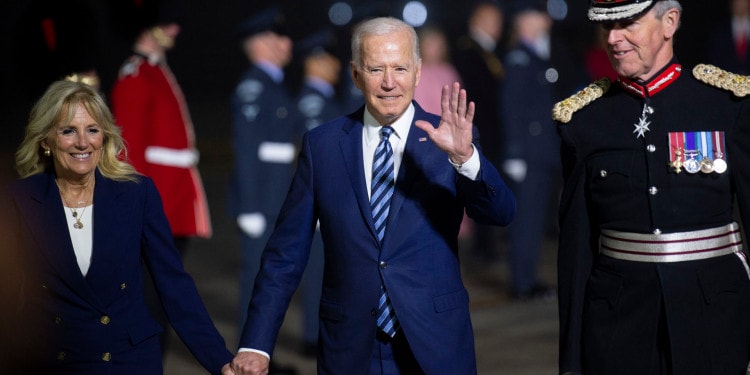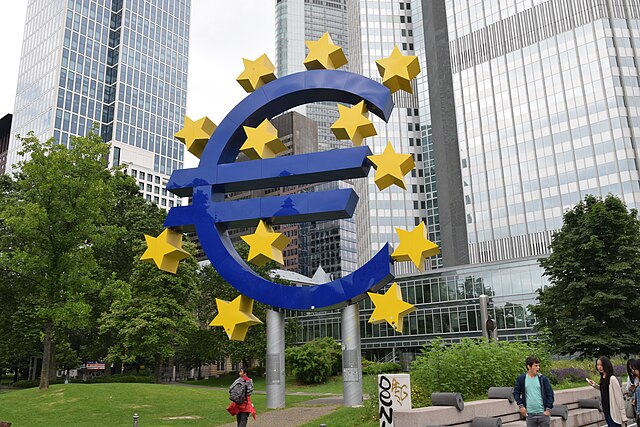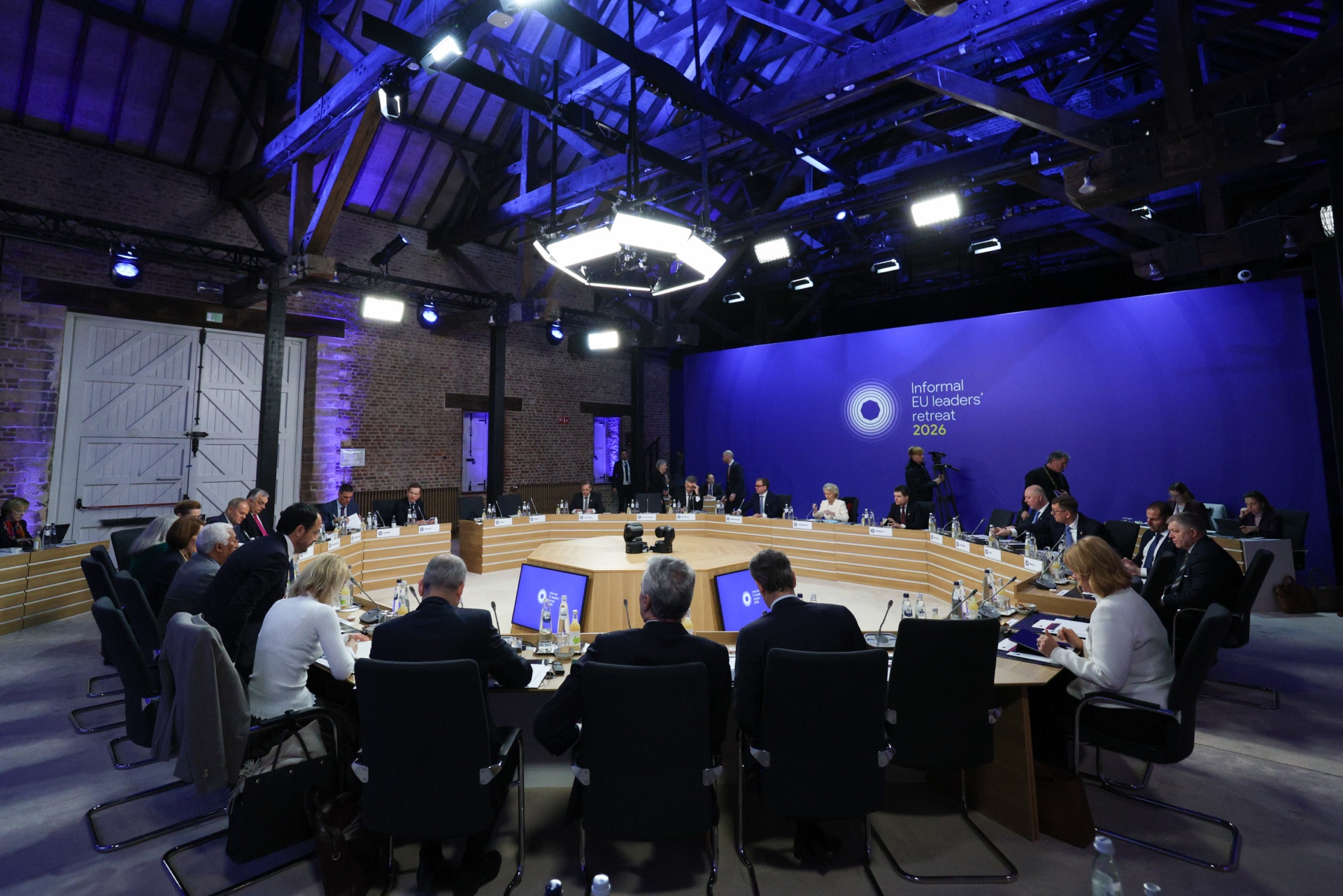Courtesy of the pandemic, the G7 meeting – hosted by the United Kingdom this weekend on the Cornish coast in southern England, calling together the leaders of the United States, Canada, France, Germany, Italy and Japan – is going to be one-of-a-kind. As Biden said upon boarding his plane, “The U.S. is back”. It’s also the first time the leaders meet in person since 2019 and the meeting is more high stakes than ever. High stakes that could be further raised in the follow-up meeting in Brussels between US President Biden and European Commission President Ursula von der Leyen and European Council President Charles Michel. Here a “transatlantic trade and tech council” could be established, tying closer together US foreign policy with its European allies.
And the G7 Summit is expected to have a coda, culminating with (what is hoped) will be a clarifying meeting between Biden and Putin in Geneva, delineating the role of Russia in the growing power fight between the world’s current two giant superpowers: the U.S. and China.
A fight that was taken up yet another notch when the US Senate on 8 June passed a massive and extremely rare bipartisan bill aimed at countering China’s economic and geopolitical rise. The Senate’s China competitiveness measure – calling for investments of more than $200 billion in American technology, science, and research – won final approval after months of committee work and weeks of partisan squabbles. The bill ultimately passed on a strong 68-32 vote – an indicator of the importance of this issue, practically the only one that can bring Republicans and Democrats together.
But this time – and for the first time in four years – Europe’s role is again in the balance. And it could lead to a very different outcome from the one envisaged by Trump. In fact, as I have often written in this magazine, the previous American administration had been so wedded to the idea of America First that it didn’t realize it meant America Alone. That is a weaker America than it ever needed to be. In short, to effectively reign in Chinese power, America needs the support of Europe.
How far America can count on Europe is not clear. The EU has yet to develop a strong foreign policy and as of now, its internal management of the function is clearly defective, making it impossible for the EU to take unified foreign policy stances. The problem is the EU voting system regarding foreign policy that requires unanimity. Hungary’s Prime Minister Viktor Orbán is now openly taunting Germany’s government with his ability to veto any unified EU response to China’s human rights abuses, particularly in Hong Kong.
And of course, aside from Europe, the U.S. needs the support of the major players in Asia, aka the Indo-Pacific: Japan, South Korea, Australia, New Zealand as well as India. Except for the latter, they had all been set aside by Trump when he left the TTP trade treaty first thing into his presidency in 2016.
The Biden administration has already started to rebuild all those broken relations in the Indo-Pacific – but, as transpired from the first vice-ministerial U.S.-EU dialogue on China, the rebuilding will be done keeping in mind European concerns – at least according to Kurt Campbell, the Indo-Pacific czar in the White House. In an event at the Center for a New American Security on Tuesday 8 June, he said “One of the most important things … is to acknowledge the foundation he [Biden] is trying to set, so that he goes to Europe and indeed engages in the Indo-Pacific from a strong foundation.”
The G7 meeting was preceded by the Biden-Johnson meeting in the UK on 10 June with the expected announcement of a “renewed Atlantic Charter”, aiming to reaffirm and build on the World War II agreement that laid the foundation for the UK-US’ famous “special relationship.”
What the Stakes are About and What to Expect
From vaccines to taxes, here are the key issues on their agenda.
1. Public Health and the Fight against Pandemic(s)
The pandemic is quite simply at the top of the agenda. The world should be made ready for the next pandemic. What is needed is an overhaul in the world’s approach to public health. Medical communities around the world agree that new prevention and preparedness measures must be taken to tackle future pandemics, and that means adopting a One Health approach, recognizing that human health is linked to both animal health and the environment.
In the immediate, vaccine donations are the one issue likely to draw the most attention – and it is a particularly tricky issue as it is likely to be politicized. Developing countries tend to link it to climate change, development assistance and debt relief.
The Secretary-general of the Commonwealth, Patricia Scotland, agrees that vaccines are closely linked to climate action. As pointed out by Paul Polman, the former chief executive of Unilever and chair of the International Chamber of Commerce, “We can’t have global solidarity and trust around tackling climate change if we do not show solidarity around vaccines”. The chances of success at the upcoming climate change conference in November, Cop26 to be held in Glasgow, Polman said, “will be significantly higher if we address this vaccine issue.” Greta Thunberg, the climate campaigner, has said she will boycott Cop26 unless developing countries get a fair share of vaccines, and some NGOs have called on developing countries in the talks to do the same.
In short, unless the G7 puts together a package on vaccines and debt relief, success at Cop26 could be in real jeopardy.
Covid Vaccine Donation
With respect to Covid vaccination, the disparity between rich and poor countries is too well known and documented to ignore. New data shows that Canada, the UK, the EU, the US and Japan have collectively procured 5.3 billion vaccine doses despite having a collective population of just over 1 billion:
10 June, the day before the official start of the G7, was a pivotal day for vaccine donations to the rest of the world.
First came the U.S. with President Biden’s announcement of a U.S. pledge of 500 million doses to be delivered to COVAX, with the doses going to 92 low and lower-middle-income countries, including African Union members. Reactions from Europe were positive. French President Emmanuel Macron called it “very good news” and said the EU should at least match it. European Commission President Ursula von der Leyen said: “We do subscribe to the G7 aim to end the pandemic by 2022 by stepping up the global vaccination,” she said. “The European Union has from the beginning contributed massively to this … We have also from the beginning ensured that the domestic vaccination goes hand in hand with exports to the rest of the world”.
Britain followed overnight with Prime Minister Boris Johnson announcing the U.K. would donate 100 million vaccine doses to the world within the next year and that he wants the whole world to be vaccinated by 2022. The next day, 11 June, BioNTech/Pfizer companies confirmed the U.S. donation and said that almost half would be delivered this year.
The expectation now is that the G7 countries will pledge to donate at least 1 billion coronavirus vaccine doses. The pressure on the G7 is strong, just last week over 200 former world leaders and foreign ministers including two former UK prime ministers, Gordon Brown and Tony Blair, wrote to G7 leaders urging them to agree to meet two-thirds of the £46.6bn cost of expanding vaccinations throughout low-income countries.
All this is coming none too soon considering that most low- and middle-income countries are struggling to procure doses through either direct deals or the global vaccine-sharing initiative COVAX. Colombia and Indonesia currently have enough to give an average of 0.9 doses per person, South Africa has 0.5 doses per person, and Pakistan has just 0.1.
A fresh World Health Organization inquiry into the origins of Covid-19
This may happen according to a draft communiqué leaked to Bloomberg News, as the G7 may be under pressure from Biden to align itself with his own request last month to expand the US investigation into the virus’s origins, with one intelligence agency leaning towards the theory that it came from a laboratory in Wuhan. Scientific consensus remains, however, that it is most likely to have jumped to humans from an animal host in a natural event.
The EU is already backing the inquiry, with European Commission President von der Leyen declaring “support for all the efforts in order to get transparency and to know the truth.”
2. Addressing the threats to democracy
Threats to democracy are the other big issues facing the G7. After landing in the UK on Wednesday night, Biden told US troops at an airbase in Suffolk: “We are going to make it clear that the US is back and democracies of the world are standing together to tackle the toughest challenges and the issues that matter most to our future.”
This means handling a series of issues connected with the two largest countries seen as a clear threat to democracies: China and Russia. And it means coming to some sort of agreement on a number of annoying secondary issues: Brexit and the dispute between the U.K. and the EU over the Northern Ireland protocol; taxing multinational corporations in a way that puts a stop to tax evasion; re-affirming the development aid target of 0.7% of donor countries’ national income. An aid target that the U.K. itself, long a supporter of it has recently abandoned. So don’t expect much on that score.
China:
China, despite the common criticism that China’s absence from the group is a reason why the G7’s influence is diminishing, is, de facto, the elephant in the room. As may be deduced from the fact that Australia, South Korea and India were invited to attend as guests – all countries within China’s reach and influence, China is a major subject on the agenda. Both Biden and Johnson will seek to convince Europe to adopt a stronger stance against China, as Chinese investments “pour” into Europe.
As a result, the G7 leaders’ statement is expected to put stress on human rights in China, including with respect to Hong Kong as the city seeks a measure of autonomy. A specific mention of Xinjiang, the region where China has been accused of abuses against Muslim Uyghurs, is reportedly still being debated.
However, the G7 is under pressure from Chinese geopolitical and economic competition. Undoubtedly, the famous Belt and Road Initiative, a brainchild of President Xi Jinping, is pushing the G7 to come up with a green and high-quality alternative. And that could mean the adoption of more extensive climate measures.
Russia:
According to Bloomberg News that got a peek at the draft communiqué, the G7 will call (as usual) for “stable and predictable relations” but also for Russia to stop its “destabilizing behaviour and malign activities.” It will call on Moscow to crack down on groups (said to operate in Russia) responsible for the recent ransomware attacks on the U.S.
The issues straining relations with both the U.S. and Europe don’t stop there and include the mistreatment of Navalny, the leader of the opposition; Ukraine and the failed respect of the Minsk accords; the problem with Moscow’s support of Belorussia’s autocratic Lukashenko who recently ordered the hijacking of a RyanAir plane and kidnapping of a passenger who happened to be an opponent; the missile race.
To what extent the G7 communiqué will address those problems and how far Biden plans to go in his meeting with Putin next week is, for now, unknown.
Towards a Global Tax Regime:
The expectation is that the historic agreement signed last week in London by the G7 finance ministers will be part of the G7 joint communiqué, as the first step toward a future tougher global tax regime. The new system is aimed at allowing governments to levy tax on the most profitable firms wherever they earn revenue, instead of allowing multinationals to play one jurisdiction off against another; and it sets a minimum rate of 15%. Activists object that the 15% rate is too low, pointing to Biden’s proposed 21%. There are also concerns about how the resulting revenue would be divided between the G7 and developing countries, and how long it might take to implement.
3. Measures against Climate Change
The climate debate will be “easier” without Trump – but the danger is that with urgent Covid issues like vaccination and corporation tax dominating the debate, climate could take second rank. This is not an outcome to the taste of UK Prime Minister Boris Johnson who is hosting the upcoming crucial climate summit, COP26. So expectations are that Johnson will want to build up some strong policy steam moving towards this.
Moreover, for once, private sector pressures on the G7 are not in defense of business-as-usual. On the contrary, for the first time ever, a group of investors controlling $41 trillion in assets called for governments to stop supporting fossil fuels and to set targets to rapidly cut carbon emissions.
This is unprecedented and augurs well for a strong stance of the G7 on climate. But whether it actually comes to pass remains to be seen.
How all this will play out with the rest of the world, especially the G20, is entirely another question – one we will have the answer to when the G20 meets in Rome, Italy at the end of October this year.
To be updated with breaking news – come back for the latest information when the G7 official communiqué is out Sunday afternoon. Updates:
G7 Results Disappointing: More About China than COVID or Climate Change
Seismic Shift by G7 in Recognizing One Health as Critical to Everyone’s Health
EDITOR’S NOTE: The opinions expressed here by Impakter.com columnists are their own, not those of Impakter.com. In the cover photo: President Biden arrives in UK for meeting with Prime Minister Johnson and G7 Summit. Source: UK Government











